IELTS Academic Writing Test in 2017 - Task 1 & Task 2 Questions with Sample Answers
8 min read
Updated On
-
Copy link
Get insights into the IELTS Academic Writing Test in 2017 by exploring the Task 1 & Task 2 questions with Sample Answers. Learn useful tips to strengthen your writing skills and reach your target band score of 8+.
Table of Contents
- Tips to Prepare with the IELTS Academic Writing Test in 2017
- IELTS Writing Task 1 Question from IELTS Academic Writing Test in 2017
- Sample Answer for the IELTS Writing Task 1 Question from IELTS Academic Writing Test in 2017
- IELTS Writing Task 2 Question from IELTS Academic Writing Test in 2017
- Sample Answer for the IELTS Writing Task 2 Question from IELTS Academic Writing Test in 2017

Try AI Essay Checker for Instant Band Score
Consistent practice with past test papers such as the IELTS Academic Writing Test in 2017 can help you elevate your IELTS preparation. In 2017, questions for Task 1 & Task 2 appeared in the actual exam, from graphical data interpretation to essay-style argumentation. By diving with the sample answers and the tips to approach such questions, you will be able to score a band 8+ in the IELTS Exam.
Remember that the Writing section will assess your capability to communicate ideas with clarity and support them with suitable vocabulary and grammatical accuracy. With consistent practice, you will develop the skills to build confidence for the exam day.
Connect with our IELTS Experts to crack your IELTS Writing and ace the exam with a band 8+! Book a Free Demo.
Tips to Prepare with the IELTS Academic Writing Test in 2017
Preparing for the IELTS Writing Tasks can feel overwhelming, especially when you have a time limit. Therefore, there is a need for a structured, error-free response which will help you score a higher band in all the parameters. Therefore, smart, regular, and focused practice sessions will build up your accuracy and confidence. Below are some of the tips which you can incorporate as you prepare with the IELTS Academic Writing Test in 2017.
Step 1: Read the Question Carefully
- Identify the type of Task 1 such as graph, table, map, or process or Task 2 like opinion, discussion, problem-solution, advantages-disadvantages.
- Highlight key words such as time frame, comparison, causes, solutions, your opinion.
- Make sure that you understand what the question asks before looking at the sample answer.
Step 2: Attempt Writing the Questions First
- Set a timer where you can give yourself 20 minutes for IELTS Academic Writing Task 1 and 40 minutes for Task 2.
- With the timer on, try to write down the whole response without looking at the sample answer.
Step 3: Compare With the Sample Answer
- Look at how the sample answers have been formulated for the given topic.
- Observe the range of vocabulary words or synonyms for "increase," "decrease," or "important.
- Look at the organization of ideas in terms of the linking words, logically grouped information, and the exact data provided.
- Find what you missed such as data, examples, transition phrases, etc.
Step 4: Rewrite and Improve
- Write down both Task 1 & IELTS Writing Task 2 and revise it using what you learned from the sample answers.
- Replace repetitive words with synonyms.
- Develop your grammar and sentence variety with a mix of simple, compound, and complex sentences.
Step 5 : Regular Practice
- Attempt more past questions on a regular basis where it is Task 1 or Task 2.
- Maintain a progress report where you can note down the mistakes and include the new words learned.
- Once a week, try simulating the entire 60-minute writing test, score yourself using the parameters, and then check at the improvement you are making.
IELTS Writing Task 1 Question from IELTS Academic Writing Test in 2017
The pie chart below shows the main reasons why students chose to study at a particular UK university in 1987 and 2007. Summarise the information by selecting and reporting the main features, and make a comparison where relevant.

Report Plan for IELTS Writing Task 1 Question from IELTS Academic Writing Test in 2017
Before you start writing your answer, it is important to note down the important points related to the Task 1 question given in the IELTS Academic Writing Test in 2017. To score a higher IELTS Band Score, you need to make a report plan for a well-structured, coherent, and concise answer. Practicing this approach would save time during the exam and help you build a systematic way of analyzing and presenting complex information. Below is the report plan which will guide you as you attempt writing your answer.
|
Paraphrase: Illustrate; Main reasons why students choose to study at a UK university during the years 1987 and 2007. Overview/Summary: 1) most concerning reason in both years. 2) least concern in 1987. Paragraph 3: Suitable degree courses and quality of reasons. Good sports and social activities. Give figures. Paragraph 4: Close to parental home and quality of teaching. Give figures. |
Hone your writing skills by preparing with the Comprehensive IELTS Writing (Academic) Band 8 Preparation Course!
Sample Answer for the IELTS Writing Task 1 Question from IELTS Academic Writing Test in 2017
The pie chart illustrates the fundamental reasons for the student’s decision to study at a specific UK university between 1987 and 2007.
In an overview, the suitable degree courses were the most concerning reason in both years. While the distance to their parent’s house was the least concern in 1987, it surprisingly became the second most important factor to study at a UK university in 2007.
In 2007, the percentage of students who choose to study at the UK university to obtain a suitable degree course witnessed a slight growth from 35% to 37%. However, for the second most common reason in 1987, the quality of resources dropped consistently from 21% to 17% respectively. Similarly, there was a considerable drop in the figures for good sports and social activities from 19% to 6% which was the least popular factor for choosing a university in 2007.
Over the period, the total number of students who preferred the university that was nearer to their parent’s houses doubled from 10% to 20%. In contrast, the number of students who preferred the University for the quality of teaching almost halved falling from 15% to 8% at the end of the period.
Elevate your scores for Lexical Resources? Prepare yourself with the Vocabulary for IELTS (Essential words for popular topics in IELTS).
Vocabulary for the Task 1 from the IELTS Academic Writing Test in 2017
-
Fundamental - essential
Eg: Trust is fundamental to a strong friendship.
-
Concerning - pertaining to a particular subject.
Eg: I got information from an e-mail concerning changes in our work schedule.
-
Witnessed - To see something occur.
Eg: While walking on the beach, she witnessed a lovely sunrise.
-
Consistently - Always behaving in the same way
Eg: He is consistently on time for meetings.
-
Preferred - To like more than something else.
Eg: She preferred tea over coffee this morning.
-
Halved - To divide into two equal parts; to reduce by 50%.
Eg: The profits of the company halved after the economic downturn.
IELTS Writing Task 2 Question from IELTS Academic Writing Test in 2017
Some people say that zoos have no useful purpose. Others believe that zoos are beneficial in many ways. Discuss and give your opinion.
Sample Answer for the IELTS Writing Task 2 Question from IELTS Academic Writing Test in 2017
A diversity of animal species from leopards, eagles to lizards have been captured and kept in zoos across the globe for centuries. While this practice is considered pointless to some, I believe there are real advantages to it.
There is a common belief that the act of caging animals is already wrong-doing against animal rights. The matter can be even worse when some caged animals are bullied, mistreated, and exploited when they are forced to do tricks in zoological games to attract visitors. Zoologists may also argue that these creatures may lose their instinct during the course of being captive; therefore, they can be incapable of returning to the wild in the future. For example, a tiger may lose its hunting nature when it is fed daily.
However, zoological gardens are invaluable not only for humans but also for the animals themselves. Firstly, for young children and biology students, these venues can provide a resourceful learning environment, where both the understanding of and the love for nature may easily evolve as physical contact with animals is possible. As a result, even the faunae from the furthest habitats such as penguins from the South Pole can be learned about and loved. Secondly, zoos have been offering a home to thousands of endangered species, where they can thrive and breed their offspring. This is crucial when over-hunting, deforestation, and climate change have destroyed the natural habitats of some wild animals.
To conclude, I firmly believe that the advantages of zoos outweigh the disadvantages. All the aforementioned disadvantages can be lessened if more is invested in zoos to idealize animal’s living space.
Vocabulary for the Task 2 from the IELTS Academic Writing Test in 2017
-
Diversity – variety of different things.
Eg : Zoos preserve a diversity of species that may otherwise go extinct.
-
Exploit - Unfairly used or takes advantage of someone.
Eg : In many factories, workers are exploited, receiving very low wages for their labor.
-
Instinct – natural behavior to born with
Eg : The baby has an instinct to cry when hungry.
-
Captive - imprisoned
Eg : The soldiers were taken captive during the war.
-
Invaluable - extremely priceless.
Eg : Her guidance was invaluable for preparing me for the exam.
-
Idealize - to make something seem better than it really is.
Eg : He tends to idealize the past, forgetting its problems.
Enroll into our Free IELTS Webinar and learn more about techniques to improve your writing skills to achieve a band 8+.
With the Task 1 & Task 2 questions with sample answers in the IELTS Academic Writing Test in 2017, you will learn how to brainstorm ideas for both the parts. Task 1 must include a clear description of a visual data set, whereas Task 2 required critical thinking and persuasive arguments. By attempting past questions along with model answers, you will learn important strategies for effective writing and provide clarity, coherence, vocabulary, and grammar in your answer.
Also Check:
Explore IELTS Writing

Start Preparing for IELTS: Get Your 10-Day Study Plan Today!
Explore other Writing Articles
Recent Articles
Haniya Yashfeen

Kasturika Samanta
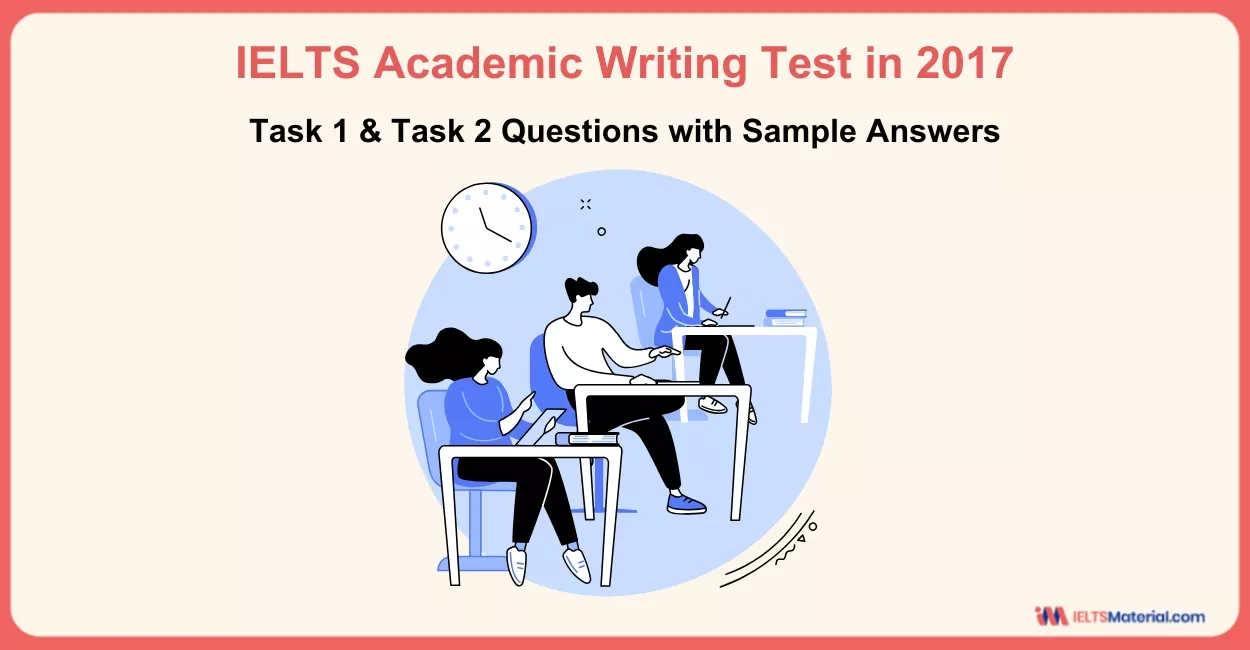

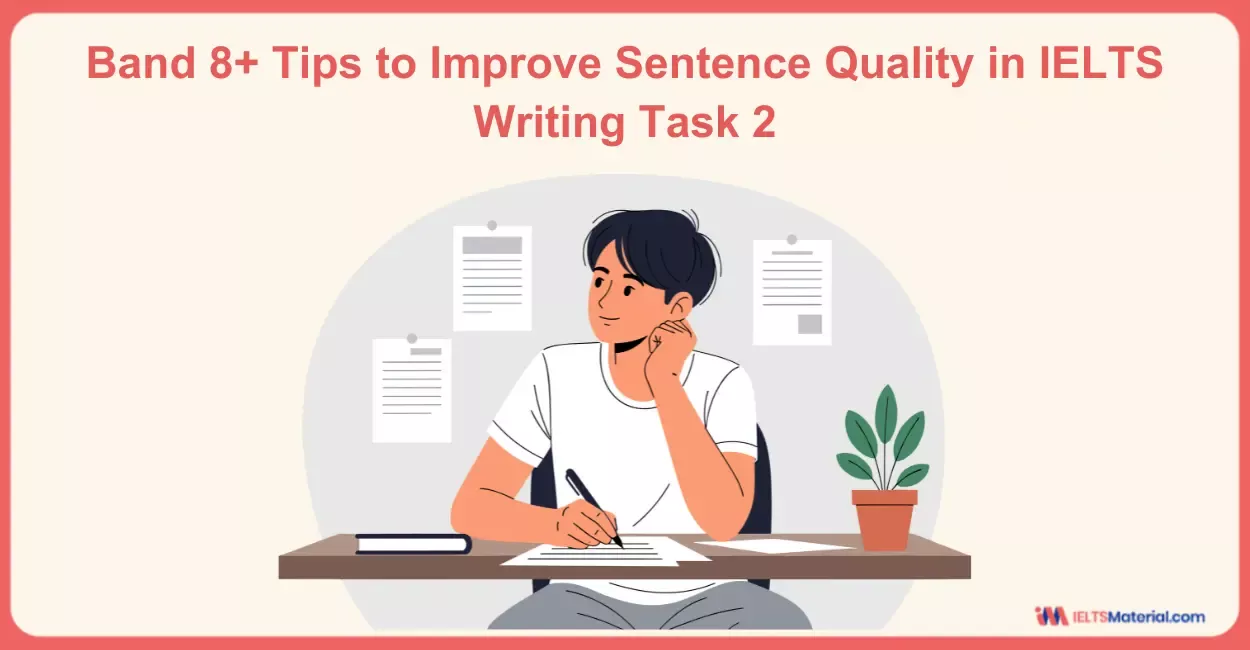
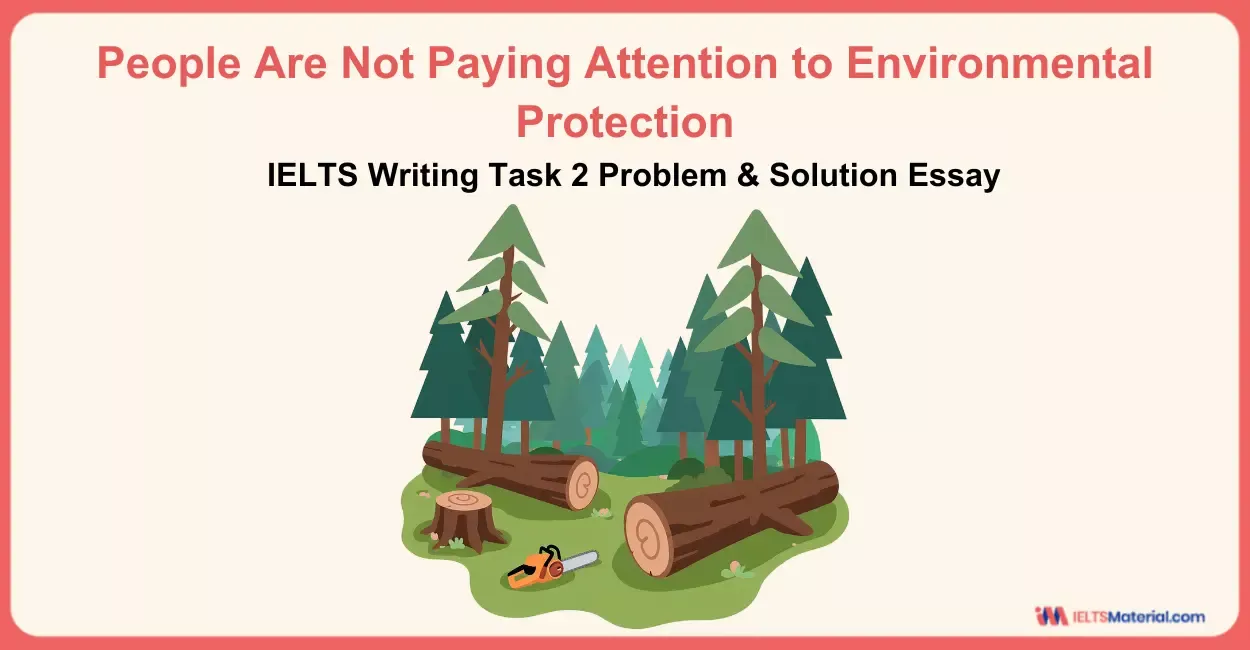
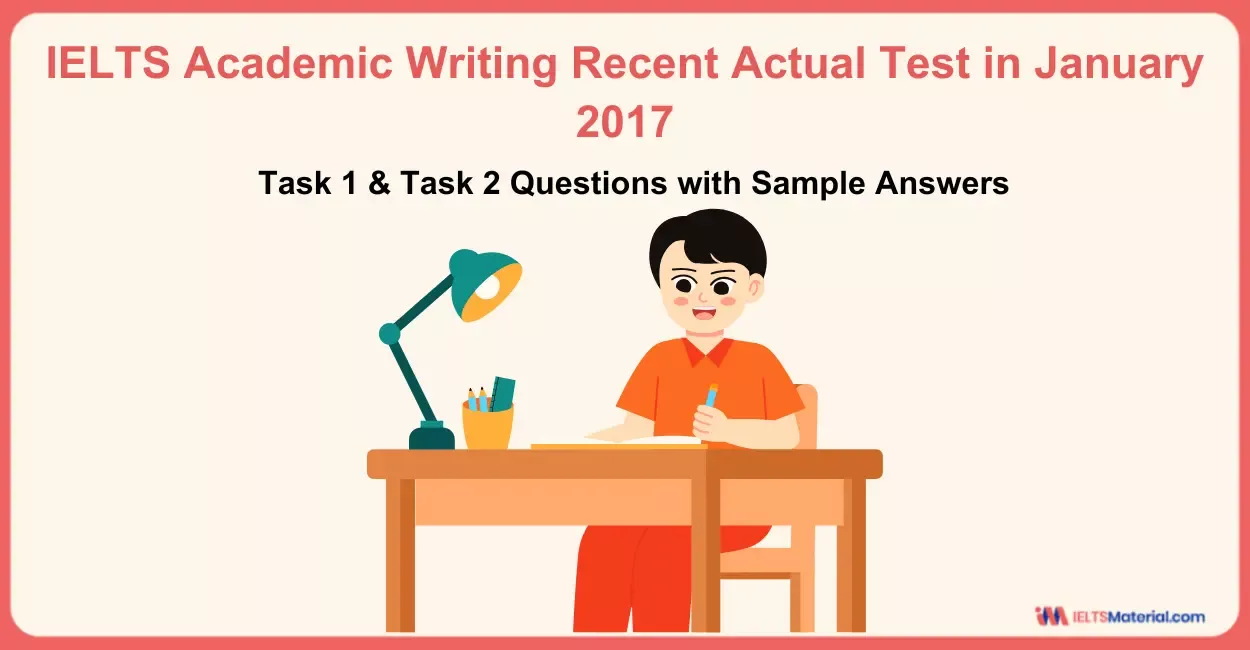
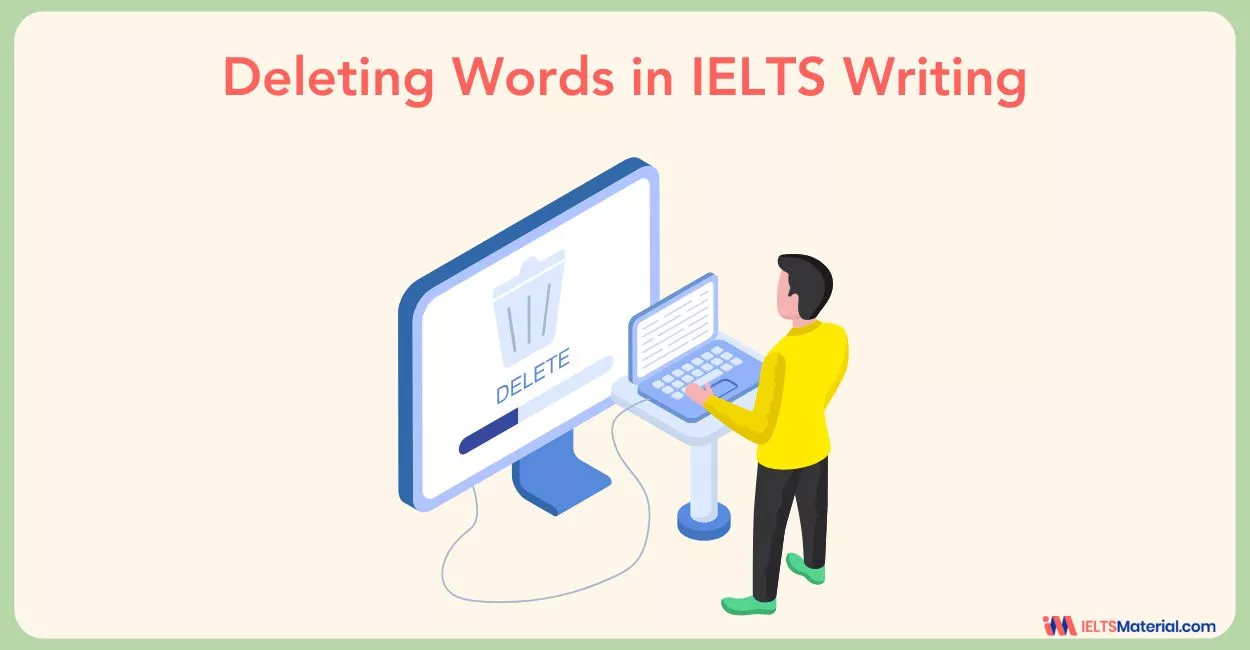




Post your Comments